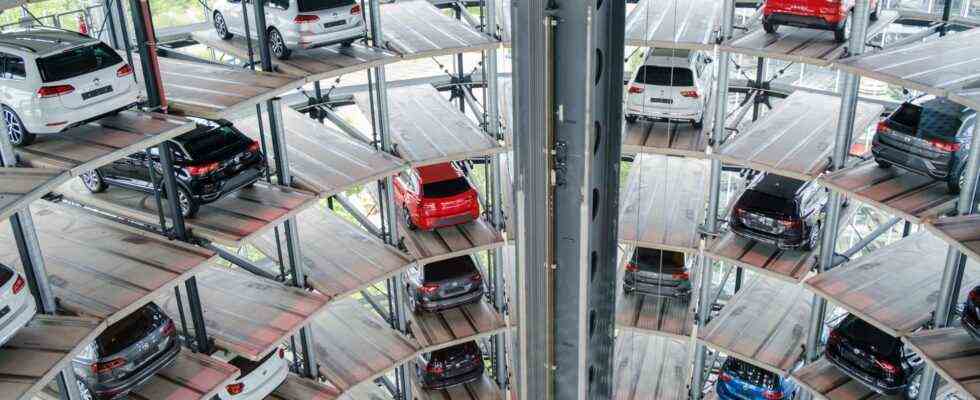Status: 07/07/2021 2:55 p.m.
After the low point in the pandemic year 2020, car sales in Germany should grow strongly this year. But because of the shortage of chips, the industry now only expects a very small increase.
The ongoing delivery problems for semiconductors are slowing down car sales in Germany. The Association of the Automotive Industry (VDA) significantly lowered its estimate for sales in the current year. VDA President Hildegard Müller said that growth of three percent to three million vehicles can now only be expected. So far, the association had forecast that sales in Germany would increase by eight percent this year after the corona-related slump of the previous year.
German manufacturer severely affected by shortage
The VDA emphasized that the development was not due to weak demand. Rather, a significant part of the decline in production by German manufacturers can be traced back to the semiconductor shortage. Since German companies produce many electric and premium vehicles, the construction of which uses a particularly large amount of semiconductors, the automotive industry in this country is severely affected.
In order to create structural remedies, “in the medium and long term, only building capacities will help,” said Müller. New works are necessary, “ideally also in Europe”. Overall, Müller called for more trade contracts with partners around the world to secure raw materials for industry. “We need foreign trade partnerships, we need trade agreements,” said Müller.
Industry against statutory combustion ban
The association used the presentation of the current figures to oppose a legal ban on internal combustion engines in Europe. That would stifle innovations, deprive consumers of their freedom of choice and endanger jobs in the auto industry, warned Müller.
The EU has announced legislative proposals on climate protection for July 14th. According to a report in the “Frankfurter Allgemeine Zeitung”, EU Environment Commissioner Frans Timmermanns is campaigning for stricter CO2 limits for new cars: by 2030 they should drop by 60 percent from the current average of 95 grams / kilometer and by 100 percent by 2035. That would in fact mean the end of the internal combustion engine and would also mean the end of hybrid drives, which are important as a transition technology for the German premium car manufacturers Audi, BMW and Daimler.

